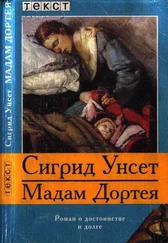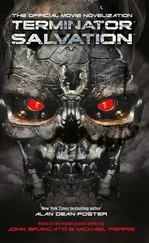“My fellow Americans, I ask you not to turn your backs on one another in this hour of need. Volunteer to help out in your communities in whatever way you can. Knock on your neighbor’s door and see if there is someone trapped and helpless who needs you.
“In many areas of the country, flu victims have been instructed not to go to the hospital but to wait for a visiting doctor or nurse to come to their homes. And yet every day we hear of new instances of people besieging emergency rooms and, in some cases, resorting to violence. Police, whose own ranks have been stretched thin, and who might be providing other emergency aid, have had their hands full protecting our hospitals and pharmacies. National Guard troops who might be delivering food and other necessities to places where they are in short supply have been engaged instead in a constant battle against rioters and looters.
“Furthermore, we are seeing a proliferation of fraud, one scam after another hatched by criminals seeking to profit from others’ misery. We warn all citizens to beware of those selling counterfeit drugs. While the majority of these substances appear to be harmless, some have sickened and even killed those who have ingested them. We are also seeing a record number of assaults on the Web. It seems hackers have been working overtime to create monster viruses with the sole purpose of unleashing more chaos upon the world. Many businesses, including government offices here in Washington, had planned in the event of a pandemic to have numbers of employees work from home. But now this has become nearly impossible, as major government and business websites have been hit and one branch of the network after another has been shut down.
“But there appears to be no act too shameful that some will not stoop to it. Certain people, some working as individuals and others as part of organized gangs, are making a business of preying on the sick and dying. They are breaking into homes and stripping weak and defenseless victims of their possessions. Reports of people robbing the dead are also increasingly common. It seems that for these scoundrels the only thing capable of trumping fear of infection is greed.”
Weeks later, when she reappeared, convalescent, the president would confess that she had no memory of having made this speech, or even of some of the things to which it referred. Much else that had taken place during the period right before her illness had also been wiped from her mind.
Among the faces appearing on the news, Cole recognized a woman with a dark hair bun like a small head peeking out from behind her: the same woman in the video about influenza that he’d watched in school assembly last fall.
“Unfortunately,” she said, “the new A-strain influenza virus has turned out to be resistant to the antiviral drugs we have available. Also, as we had feared, we are seeing a rise in cases of flu victims developing bacterial co-infections that are resistant to antibiotics. A new vaccine is still perhaps a month or so away. Then we’ll be faced with the tremendous challenge of manufacturing the large quantity of doses needed and organizing for mass vaccinations.”
“How can she be so calm?” Cole’s mother wanted to know. It was a calm that riled rather than soothed her.
Most of the other people they saw on the news could barely control their emotions.
“They say stay home, wait until a doctor comes. But then no doctor ever shows up. Meanwhile, my wife is getting sicker and sicker.”
“First they warn everyone to wear a mask. Then we find out unless it’s a special kind of mask it’s not going to protect you at all.”
“It’s not just a question of beds. There’s not enough linen, not enough gloves, gowns, hypodermic needles, disinfectant, meds, you name it. Not enough ambulances, not enough ventilators or other equipment. Hospitals are even running out of food.”
“It’s not like every other bad thing stopped happening to make room for the flu. People are still getting cancer and having heart attacks and strokes and road accidents. The idea that we could handle any kind of surge on top of that—whoever’s fantasy that was, it was never going to happen.”
“The retired workers they were depending on to take over for the workers out sick? Very few of those people ever showed. The volunteer doctors and nurses and the other helping hands—they aren’t showing up, either. It’s not like 9/11. There aren’t any heroes rushing toward the danger. The danger is everywhere, and everyone’s running scared.”
“Let’s face it, this is America. Anything that’s bad for business, people don’t want to hear. When it comes to money or doing the right thing, most people are going to choose money. Close up shop for months till they can make a new vaccine? How many businesses would still be alive after that?”
“This disaster proves what some of us have being saying about America all along: everything is broken.”
“The bottom line is, sports events provide a boost to the local economy. No one wanted to take the heat for calling them off.”
“How can anyone behold what is happening and not see it as a sign? Brothers and sisters, we have entered the final days.”
“Cancel a fund-raiser expected to bring in millions? I don’t think so.”
“When people think of the flu, they think of seasonal flu. They don’t understand that a panflu is a whole other disease. They see people’s skin turn dark blue and they think it can’t be the flu, it must be bubonic plague or something. They see people crying tears of blood, and they think it must be the end of the world.”
“God’s kingdom is come. Whoever takes Jesus into his heart at this time will not be left behind.”
“Thus far the so-called Guinea Worm has been the most lethal, taking down computer systems around the globe.”
“Well, if it ain’t the end of the world, I don’t know what else you’d call it.”
“How the hell do you tell people they can’t go to church on the eve of the rapture?”
NOT BEING ABLE TO GO ONLINE whenever he wanted—it was as if his right hand were gone.
Not being able to leave the house was weird, too. First his mother makes him go to school every day, right to the bitter end; now he can’t go past the front porch.
Cole was not yet used to the new house: its smell, its noises, the brown (instead of apple-green) walls of his room. Also, to make the move easier his parents had sold most of their furniture on eBay and taken a house that was already furnished. Cole didn’t really care about furniture one way or the other, but there seemed to be too much of it, so that somehow the six-room house felt more cramped than their old five-room apartment.
He stepped out a couple of times a day, sometimes sneaking a smoke. Found treasure: someone had left a half-full pack of Marlboros on a table at Burger King. Cole could not believe his luck. Of course, his mother would freak if she caught him. But then she was in full-frontal freak these days anyway.
Though he couldn’t stand more than three or four puffs at a time, he was satisfied that he was on his way to being a real smoker. (Two things he’d decided were definitely in his future: cigarettes and a motorcycle.)
Even in normal times their dead-end street was quiet. The Vinings hadn’t been living there long enough to know their neighbors, and Cole didn’t expect they’d ever know any of them all that well. His parents had strong ideas about not getting too close to neighbors. It was one more reason his mother disliked small towns. In places like Little Leap the neighbors tended to be over friendly, she said. (And this would be one more source of bafflement for Tracy. “Loving your neighbor’s just another way of loving God. And there can’t never be too much of that!”)
Читать дальше













